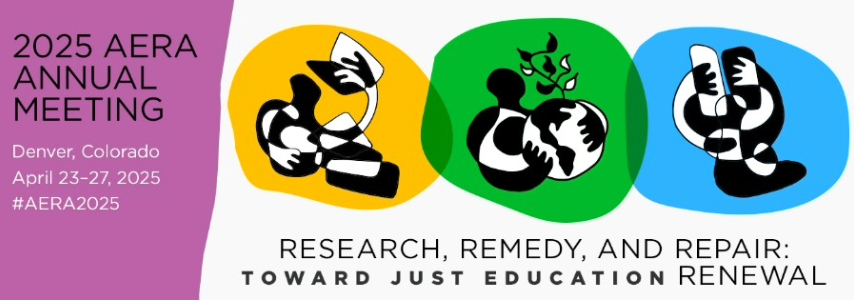Type: Symposium on Reflections on Positionality: A Call Toward Reimagining Roles, Responsibilities, and Relationships in Research
Author: Cati V. de los Rios (University of California – Berkley) and Leigh Patel (University of Pittsburgh)
Time: Friday, April 25 from 8:00 to 9:30am MDT (10:00 to 11:30am EDT)
Location:The Colorado Convention Center, Floor: Terrace Level, Bluebird Ballroom Room 2G
Description: To address the influence of knowledge creators on the formation of knowledge structures, educational research introduced the genres of “position” and frequently “positionality statements.” These frameworks typically involve researchers addressing specific social identities such as race, class, and gender. Educational research, heavily influenced by anthropology and its primary methodology of ethnography (Pountney & Marić, 2021), also inherits a responsibility to confront the historical roles of subjectivity and objectivity within anthropology. In this presentation, we conduct a critical genealogical exploration of position and position statements in educational research, examining why they have gained significance and prominence within qualitative education scholarship. We address the roles and limitations of positionality statements and how they contribute to understanding relational dynamics that extend beyond an individual’s social locations and identities. Using some of the early writings of anthropologist and folklorist Zora Neal Hurston, we analyze positionality statements’ evolution into a distinct genre in educational research as well as within a broader context of knowledge and coloniality. The work of Zora Neale Hurston (1935, 1937) helps to illuminate the long-standing challenge of documentation, representation, and the many ways in which contemporary research that addresses positionality is connected to debates about power, representation, and the inherent subjective nature of research. In this similar vein, contemporary critical scholars and knowledge stewards such as Simpson (2017), Smith (2021), Pillow (2003), and Ochoa (2022) also remind us that the implications of knowledge as relation are powerful. Simpson (2017), for example, asserts that Indigenous resurgence must not align with multicultural frameworks centered on identity positions, but instead prioritize place-based imperatives in opposition to the settler state’s logics. This perspective underscores the inherently political and contested nature of knowledge production, intimately tied to issues of justice. Building on this, Tuck and Yang (2018) explored questions such as which justice matters, whose justice prevails, and how to reconcile conflicting notions of justice. Their edited volume reframes research not just as praxis, as Lather (1986) suggested, but positions justice itself as a contested framework encompassing epistemology, ontology, and sociogeny. A move from positionality statements into the more complicated and arguably more generative area of knowing as relation opens up much for the field of educational research while also tamping down some practices as insufficient. Drawing on these insights, and others, concerning power and representation, we argue that statements of relationality must serve purposes beyond an individual’s identities or social location. Additionally, we incorporate a reflective dialogue to share our own encounters with positionality statements and interpretations. This personal perspective aims to enrich our discussion and provoke further considerations on how these statements shape knowledge production.
VIEW AERA CONFERENCE PAGE


